Пакс Россия: “Pax Rossiya” Versus “A New American Century”
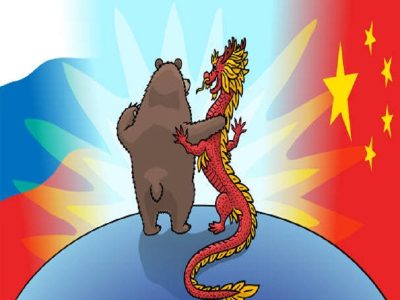
All Global Research articles can be read in 51 languages by activating the Translate Website button below the author’s name (only available in desktop version).
To receive Global Research’s Daily Newsletter (selected articles), click here.
Click the share button above to email/forward this article to your friends and colleagues. Follow us on Instagram and Twitter and subscribe to our Telegram Channel. Feel free to repost and share widely Global Research articles.
Give Truth a Chance. Secure Your Access to Unchained News, Donate to Global Research.
***
For those who are less familiar with the Project for the New American Century (PNAC), since the media abstained from mentioning it lately, PNAC was officially created in 1997 in Washington DC, by the cream of the crop of the then new neoliberal elite, William Kristol and Robert Kagan.
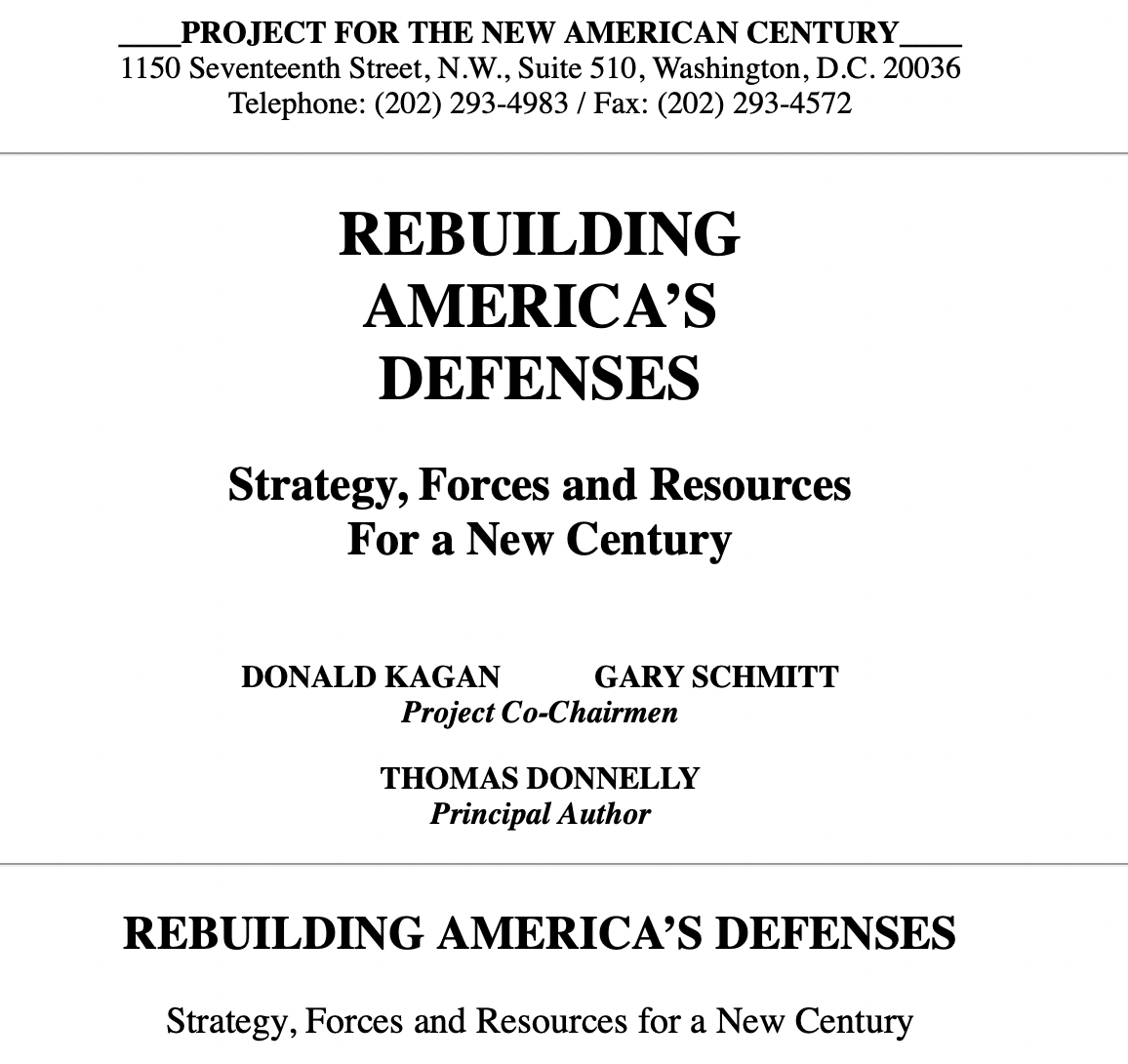
The PNAC’s declared objective is to:
“Fight and decisively win multiple, simultaneous major theater wars”.
This statement indicates that the US plans to be involved simultaneously in several war theaters in different regions of the World.
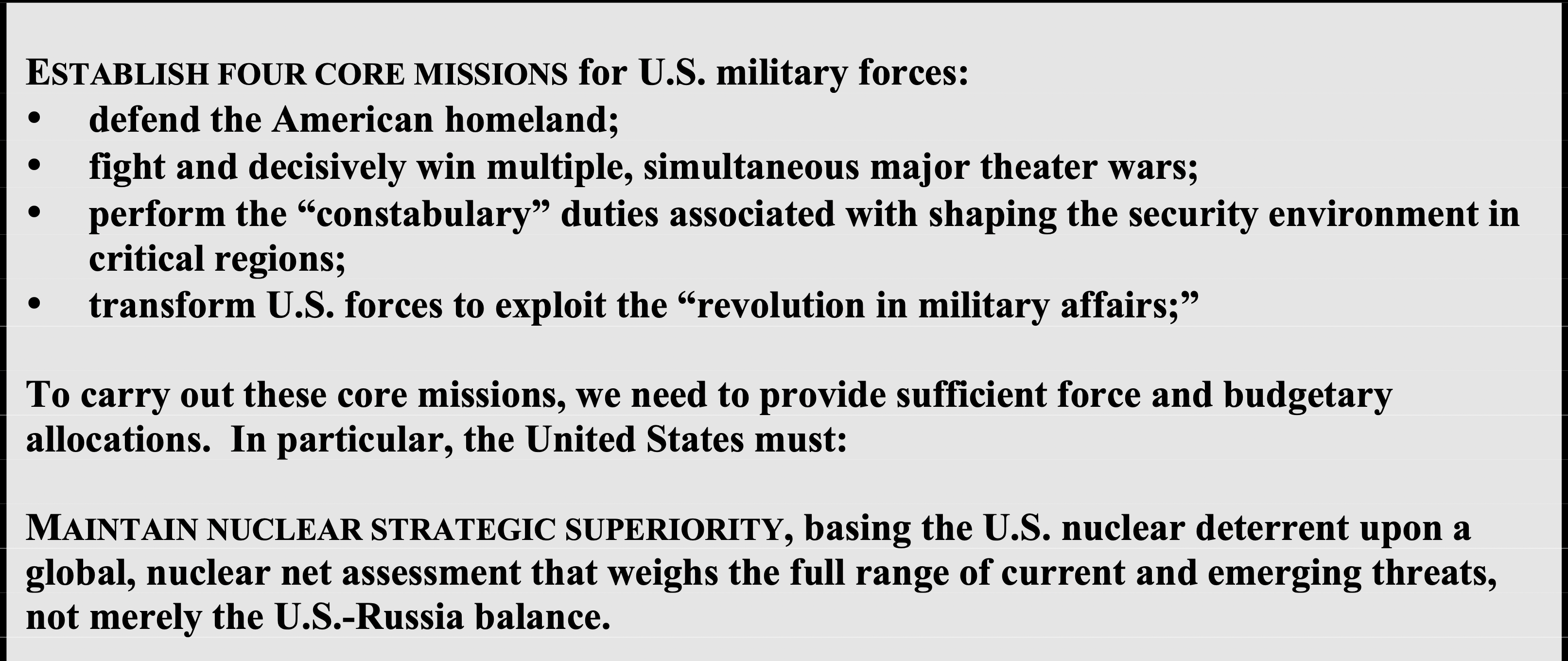
Neo-Conservatives
William Kristol is the son of Irving Kristol, who founded “Neoliberalism” in the 1970s, first propagated by his book, “The Neo-conservatives: The Men Who Are Changing America’s Politics”. This book and the ideology that grew after its publication, including the infamous Washington Consensus, were the precursors of PNAC.
In brief, Irving Kristol defined a neoliberal as: “A liberal who has been mugged by reality”. This concept includes ultra-free market policies, supply-side economics, and tariff protection for international trade, as well as a universally offensivedefense apparatus. These ideas lie at the core of the neo-conservative philosophy to this day.
It is one more step for Zionists to dominate the US and the world.
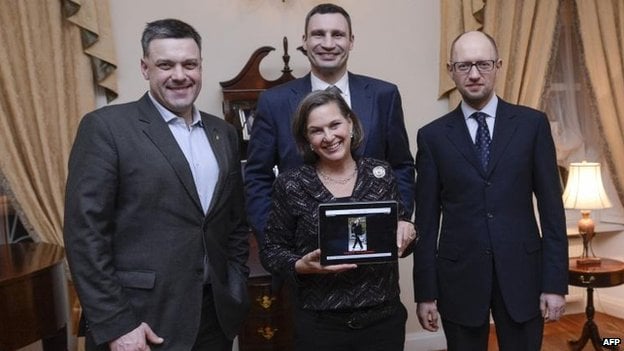 Remember Madame Victoria Nuland, the engineer of Ukraine’s Maidan Coup, which led to the current proxy war of the US against Russia, with Ukraine as platform, where millions of Ukrainians are sent to the front to die for the US hegemon against Russia. They are killed on behalf of Washington. Well, Victoria Nuland is Robert Kagan’s wife.
Remember Madame Victoria Nuland, the engineer of Ukraine’s Maidan Coup, which led to the current proxy war of the US against Russia, with Ukraine as platform, where millions of Ukrainians are sent to the front to die for the US hegemon against Russia. They are killed on behalf of Washington. Well, Victoria Nuland is Robert Kagan’s wife.
Neoliberalism and igniting wars and aggressions seems the be their family project, as the PNAC’s mission statement reads:
“American leadership is good both for America and for the world”.
This says it all – either you accept our goodness, or else…. A clear message to the world.
Image: First Left: Leader of the Svoboda Neo-Nazi party.
Indeed, that has happened and continues as of this day. Although PNAC was officially dissolved in 2006, it was recreated and reorganized in 2009 with the same co-founders, Kristol and Kagan, under the name of “Foreign Policy Initiative”, which in turn was officially dissolved in 2017. However, in spirits and deeds, the PNAC ideology – neoliberalism – and related international aggressions continue as of this day.
Juxtapose the PNAC to the new-sounding “Pax Rossiya”, which may easily be expanded to include China as well, to be renamed to “Pax Rossiya-China”. Both Russia and China are faced with a common aggressor, the United States.
For Russia, it is the North Atlantic Treaty Organization (NATO) in Europe; for China, it is Washington’s network of bilateral defense treaties in the Indo-Pacific region. Both countries are surrounded by more than 700 US military bases.
The cooperation between the two countries has started already in the early 1990s, shortly after the fall of the Soviet Union. The Russia-China collaboration was the result of the two countries’ mutual desires to balance the influence of the US hegemony and establish a multipolar international system.
Since then, the cooperation has gradually progressed by a multi-front strategy, economically, militarily and by trade.
The China-Russia partnership has been further enhanced by a strong personal bond between Presidents Putin and Xi.
*
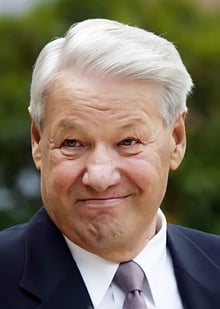 Russia-China relations were poor throughout the Cold War until the fall of the Soviet Union in 1991. In 1992, then Russian President Boris Yeltsin made a first post-USSR visit to China which led in 1996, when then Chinese Premier Li Peng visited Moscow, to a joint communiqué pledging to build an “equal and reliable partnership.”
Russia-China relations were poor throughout the Cold War until the fall of the Soviet Union in 1991. In 1992, then Russian President Boris Yeltsin made a first post-USSR visit to China which led in 1996, when then Chinese Premier Li Peng visited Moscow, to a joint communiqué pledging to build an “equal and reliable partnership.”
In 2001, the close relations between the two countries were formalized with the Treaty of Good Neighborliness and Friendly Cooperation.
Shortly before this 20-year strategic, economic, and military treaty was signed, Russia and China, joined by Kazakhstan, Kyrgyzstan, Tajikistan and Uzbekistan, created the Shanghai Cooperation Organization (SCO).
The SCO has since expanded and become an important strategic multi-country force to counter the US / NATO influence in the region. In the meantime, SCO was joined by another growing block of economic and monetary strength, the extended BRICS, comprising today ten countries (Brazil, Russia, China, India, South Africa, Iran, Egypt, Ethiopia, Saudi Arabia, and the United Araba Emirates). At the October 2024 BRICS Summit, hosted by Russia, most likely another six to eight nations will be added.
This is part of the multi-branched approach for a new multipolar world.
 On another level in 2013, President Xi Jinping organized the Belt and Road Initiative (BRI), also called the New Silk Road.
On another level in 2013, President Xi Jinping organized the Belt and Road Initiative (BRI), also called the New Silk Road.
The BRI, currently with six to eight international “roads” spanning the globe (land, air, and sea), is yet another means of peacefully coordinated economic development, basically through joint infrastructure projects, but including also collaboration in research, education, and cultural exchange programs.
For many years, Russia, China, and other BRICS members have worked towards a multipolar world, in finance trade and ever stronger military alliances.
Last week has culminated in that multipolar cooperation emerging into a multi-country defense pact by President Putin’s visit to both North Korea (Democratic People’s Republic of Korea (DPRK)), followed by a visit to Hanoi.
During Mr. Putin’s meetings with the Heads of State of DPRK and the Socialist Republic of Vietnam, strategic partnerships were agreed upon beyond joint military defense and security pacts, are also promoting partnerships for mutual development of trade, technology, and science.
These peaceful developments, prepared by long-term-thinking strategists, by both Russia and China, may fall under a new Pax Rossiya-China. They are not only a serious contender for Pax Americana, also called A New American Century, but more importantly, they are Peace Initiatives spread around the globe, for common sharing of wealth, to bring more equilibrium and Peace to Humanity.
*
Note to readers: Please click the share button above. Follow us on Instagram and Twitter and subscribe to our Telegram Channel. Feel free to repost and share widely Global Research articles.
Peter Koenig is a geopolitical analyst and a former Senior Economist at the World Bank and the World Health Organization (WHO), where he worked for over 30 years around the world. He lectures at universities in the US, Europe and South America. He writes regularly for online journals and is the author of Implosion – An Economic Thriller about War, Environmental Destruction and Corporate Greed; and co-author of Cynthia McKinney’s book “When China Sneezes: From the Coronavirus Lockdown to the Global Politico-Economic Crisis” (Clarity Press – November 1, 2020).
Peter is a Research Associate of the Centre for Research on Globalization (CRG). He is also a non-resident Senior Fellow of the Chongyang Institute of Renmin University, Beijing.
Featured image source

